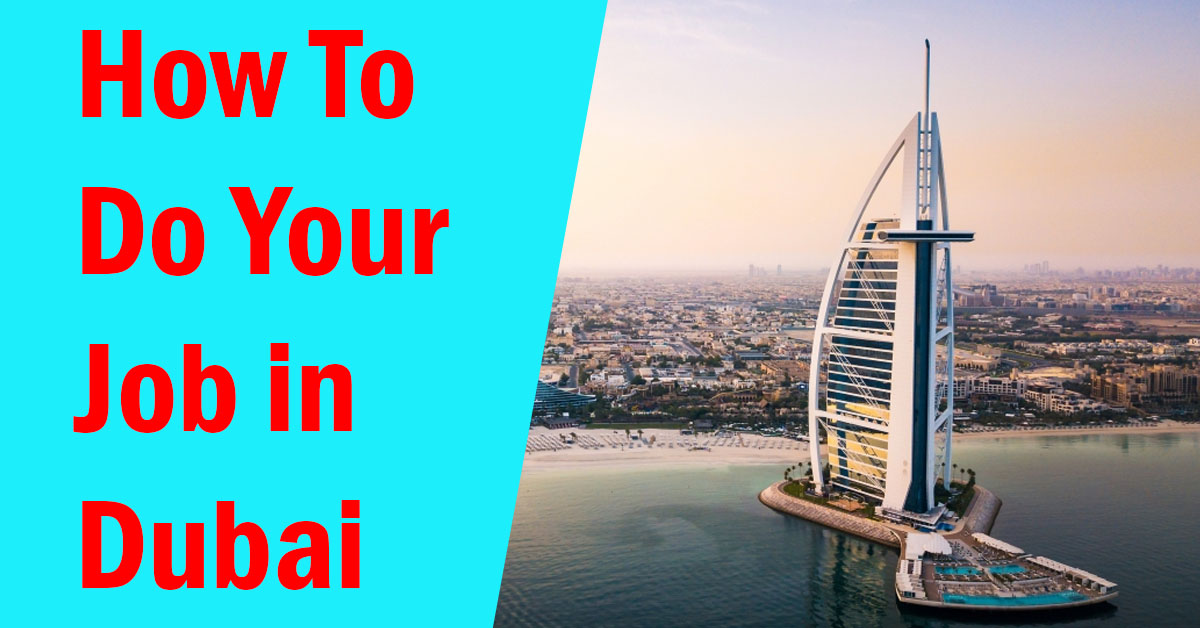How to Find a Job in Dubai
When looking for a job in the UAE, one of the first things to do is get a Work permit. This is the only kind of visa required to work in the UAE. International qualifications are generally well-received and are often considered an asset when looking for a job in the UAE. Hospitality jobs are the easiest to find and tend to be more in tourist areas. Cold calling is another way to find a job in Dubai.
A work permit is the only type of visa needed to work in the UAE
If you wish to work in Dubai, you need a work permit. This is required by law. You can apply for it either online or in person. The process can take between three and nine months, depending on your circumstances. The UAE also requires that you pass a medical fitness test. This is to ensure that you are free from any common communicable diseases. Failure to pass this test will result in deportation.
The UAE Work Visa is issued by the GDRFA and is valid for one, two, or three years. After these time frames, you must renew the work permit within 30 days. Depending on the employer and the position, a work permit can last from one to five years. In addition to this, a work permit can last for two, five, or ten years. The visa can be renewed up to three years before it expires.
The UAE Ministry of Labour offers a six-month waiver for workers who have three skill sets, such as a university degree or post-secondary diploma. The visa fee is AED 5,000 every two years You can sponsor family members and spouses if you have a business license in the UAE. You can even sponsor your spouse and children You must also be 18 years old.
If you are looking for a long-term employee assignment, you will need a work permit and a labor card. These documents are issued by the Ministry of Labor. Once you have the work permit, you must get your residence visa and an Emirates ID or Labour Card. The residency visa allows you to work in the UAE lawfully. It is usually valid for two years and is issued at the discretion of the UAE authorities.
International qualifications are generally well-received
When applying for a job in Dubai, international graduates will usually benefit from a higher salary than local candidates. The UAE has a tradition of tradition and is known for its Arabic culture, but English is the main language of business. The population is 85% foreign. It is not unusual to see British people in your new workplace, and international qualifications are often highly regarded. Generally, international graduates are highly sought after in the UAE, as they tend to have good English language skills.
Although many UAE employers prefer UAE citizens, they may require native English speakers. If you have a university degree or an equivalent qualification, you can find employment teaching English as a second language. There are also many opportunities in the UAE for those with PGCE qualifications. In addition to teaching adult learners, you can also work for businesses in the UAE to ensure employees have good English language skills. You may even qualify for an exchange program in the UAE if your university has ties with the UAE.
While international candidates should take their own time in submitting their CV, they should be prepared for the competitive nature of the job market in the UAE. CVs should contain the name of the applicant, age, nationality, and photo. A cover letter should be included with the CV, focusing on the reasons why the applicant is qualified for the position. While applying for a job in the UAE, it is essential to remember to compose a separate letter for each position.
While international degrees are generally well-received when applying for a job in Dubai, these are not the only qualifications needed to land a job in the UAE. UAE employers are also looking for people with a background in STEM (science, technology, engineering, maths), and business management. However, while international qualifications may be a bit more prestigious than a diploma or degree, they are generally not regarded as inferior by local employers.
Hospitality jobs are easiest to find in tourist areas
The hospitality industry offers a wide range of career options. These range from working in front-of-house guest services and serving food to positions in business management. Opportunities exist at the corporate side as well, such as in market research, press relations, human resources, and digital marketing. These can be exciting and varied, and the best places to find hospitality jobs in Dubai are in tourist areas. Here are some tips to find the perfect position for you:
Hotel occupancy rates were 77% higher in 2017 than in 2016, and the UAE had been on track to welcome 20 million tourists by 2020. However, the onset of the Covid-19 virus in January 2019 ruined that target, but a year later, the country expects to reach 20 million tourists. As a result, you may find it easier to find a hospitality job in Dubai than you expected. In addition to securing a position, you can also get experience by volunteering in UAE hotels or tourist areas.
If you are looking for a job in Dubai, consider searching on Hosco, a global hospitality employment platform. The website not only lists available roles in tourist areas but also provides tips for successful interview preparation. Alternatively, you can also use a service like Jobsite.com, which lists hospitality jobs across the world, and helps you create a CV and prepare for job interviews in Dubai.
The hotel industry in Dubai has flourished during the past decade. It is a shopping mecca and an adventure lover’s paradise. It is an exciting city with a thriving culture of dynamism and outstanding hotel industry. The upcoming World Expo in 2020 is expected to attract an estimated 3.5 billion visitors and will transform the hotel industry. However, if you want to stay on top of things, you should apply for hospitality jobs in Dubai.
Cold calling is a good way to find a job in Dubai
Though many experts consider cold calling to be an old technique, it actually works for a significant percentage of candidates in Dubai. The key is to do your homework and research the company in order to stand out from other applicants. Look into the company’s recent achievements and work from there, starting with an inquiry about a particular job. If you’re a student or have no experience in the field, cold calling could be the best way to find a job in Dubai.
You can start by registering with LinkedIn or other professional networking sites. Start with an impressive CV and cover letter, and make sure to follow up with phone calls. It’s easy to lose interest in a job offer in the middle of your search. Always ensure that the email address is correct before applying, as it should reflect the domain name of the company you’re applying to. Cold calling can be an effective way to find a job in Dubai, but be prepared to make several calls a day.
Once you’ve found a potential employer, try connecting with the manager in charge of that department. Try to identify a supervisor or department head, and offer a time when you can meet. Recognize that the contact is busy, so make an appointment for a later time. This way, you can turn a cold call into an appointment. It is also important to remember to be polite since it’s an opportunity to connect with a potential employer.
Make sure you dress professionally. For an interview, wear a suit and tie and avoid chewing gum. Also, do not wear heavy makeup, as the wind can make you look unprofessional. The appearance of a job interview is crucial and you don’t want to come across as nervous. Also, try to avoid smoking before the interview, as the cigarette smoke will diminish your chances of getting hired.
Negotiating compensation for living in Dubai
When you’re looking for a job in Dubai, negotiating compensation for living costs is an essential part of the process. While salaries are the main concern, the cost of healthcare, schooling, and housing can push up the overall cost of living considerably. To compensate for these expenses, some employers offer housing allowances, which you can top up with other expenses, such as the cost of an estate agent. Headhunters are also well-placed to negotiate compensation for relocation and other costs, including housing allowances.
The best strategy when negotiating compensation for living in Dubai is to be proactive and request time to consider any offers you’re made. This gives you enough time to evaluate your offer and prepare a counter-offer. If you’re hired, the employer may ask you to provide your payslips as proof of your salary. While you may not have to provide them, it’s a good idea to make sure they have access to them if they ask.
If you’re offered an alternative currency, make sure to find out the historical trend of the two currencies. It’s best to engage a financial advisor to help you understand the risks involved. Even if your salary is offered in your home currency, it’s best to negotiate for a compensation package that covers all of your living expenses in the host country. Remember that in the current global economic climate, you might not be able to accept the job you’ve been offered.



